ANMF (Vic Branch)
REPORT: Health & Environmental Sustainability Conference 2022
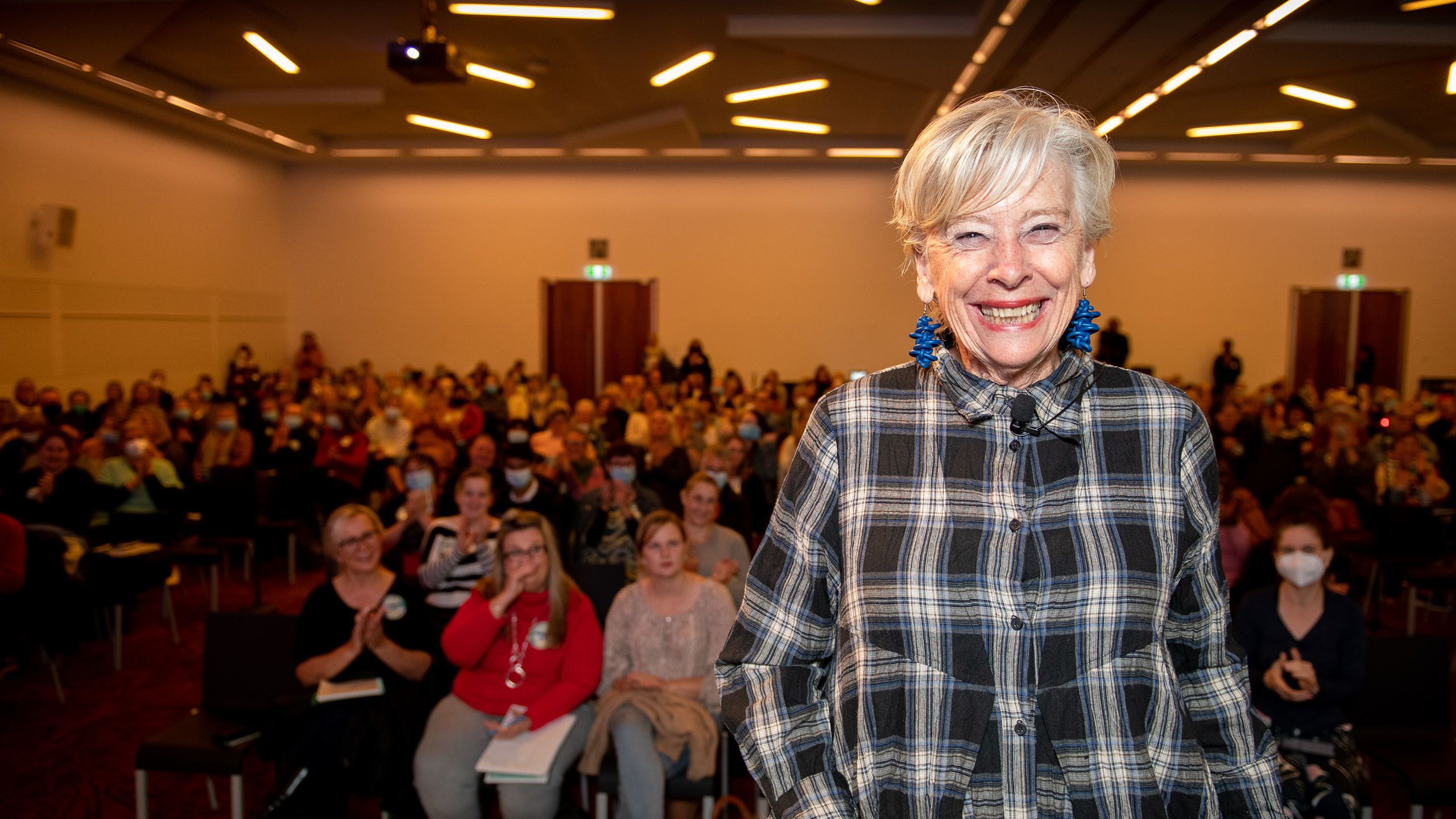
Returning to an in-person event for the first time in two years, the 2022 ANMF (Vic Branch) Health and Environmental Sustainability Conference (HESC) saw more than 300 nurses and midwives gather to hear the latest sustainability innovations in healthcare.
After a welcome by Branch Assistant Secretary Madeleine Harradence, the conference was officially opened by the Branch’s Environmental Health Officer and event MC Ros Morgan, before Lily D’Ambrosio, Victorian Minister for Energy, Environment and Climate Change, updated the audience on the state government’s sustainability initiatives.
Ros then sat down with conference keynote speaker Maggie Beer for an informal and entertaining chat.
Playing to her audience, Maggie surprised and delighted attendees by revealing that her first career was as a nurse. Unfortunately, her nursing journey was cut short following a serious back injury that put her in traction for months. Healthcare’s loss is Australian foodies’ gain.
The wide-ranging conversation encompassed topics including the first thing Maggie ever cooked (offal); how she got the sack from her first cooking job (for using too much food); how her next food-related job – making sandwiches at a chalet in Mt Buller – changed her life (she met her husband there); her tips for juggling a hectic working life and family (seek support, and find time for yourself); what sustainability in food looks like (eating seasonally, and locally, and growing your own food); and her work in the aged care sector.
‘It is so possible to fix,’ Maggie told the audience, before discussing the work of the Maggie Beer Foundation in aged care. ‘We have so many brick walls at the moment,’ she concluded. ‘But I am determined, and education is the way. Once you have a platform, you have a responsibility, but that also gives you energy. I’m 77 and I don’t see myself slowing down because I’m doing something – about food in aged care – that I can see benefit from, even though it’s the hardest thing I’ve ever done.’
Following Maggie Beer, dietitian Dr Jorja Collins gave an illuminating talk about improving both food, and food waste, in our hospitals – although she was nervous speaking immediately after the beloved food icon.
Among the shocking statistics Jorja presented were that food waste, if it were a country, would be the third biggest greenhouse gas emitter, behind the US and China. It contributes up to 50 per cent of total healthcare waste by weight in some hospitals, but hospitals and healthcare are not part of Australia’s national strategy to halve food waste by 2030.
In an interactive talk, Jorja addressed the complexities of the issue, and offered some surprisingly simple solutions – such as getting rid of paper menus. An electronic bedside meal-ordering system, now common in the US, reduces the lag time between ordering and eating, which helps reduce food waste.
Jorja also revealed the results of a pilot study she and her colleagues conducted, in which they collected around 1,500 non-perishable food items in un-opened packages per day, in one hospital. They tested all these items and found they were microbiologically safe to re-use. But typically, these items end up in the bin.
‘There are many things that nurses and midwives can do in your day-to-day practice to avoid food waste in the first place,’ she said. Some examples given included:
- Enter diet code information and make changes promptly and correctly.
- Make sure you understand how to use the menu-management system so that the information going down to the kitchen is accurate and timely.
- If a patient is on a food chart, report food intake back to the dietitian (if you can find them) so that the plan can be adapted.
- Give meds, especially anti-nausea meds, before meals.
- Importantly, don’t talk badly about the food in front of patients, especially if you haven’t tasted it yourself.
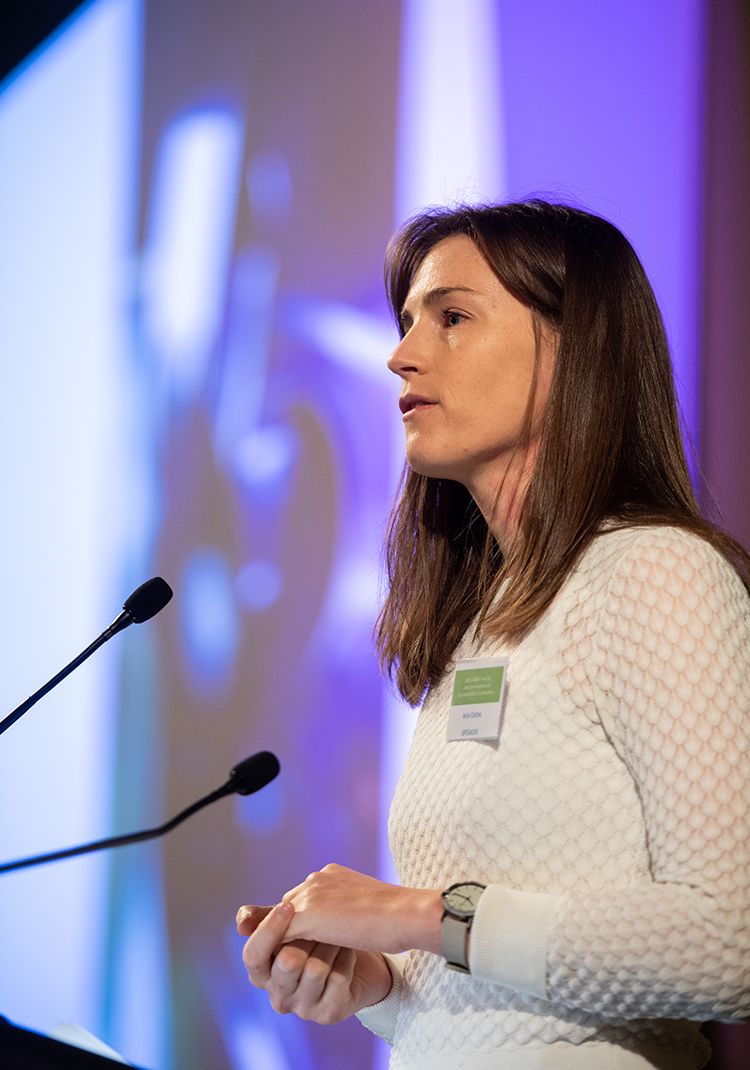
Dr Jorja Collins, from Monash University and Eastern Health. Photo: Penny Stephens
Dr Jorja Collins. Photo: Penny Stephens
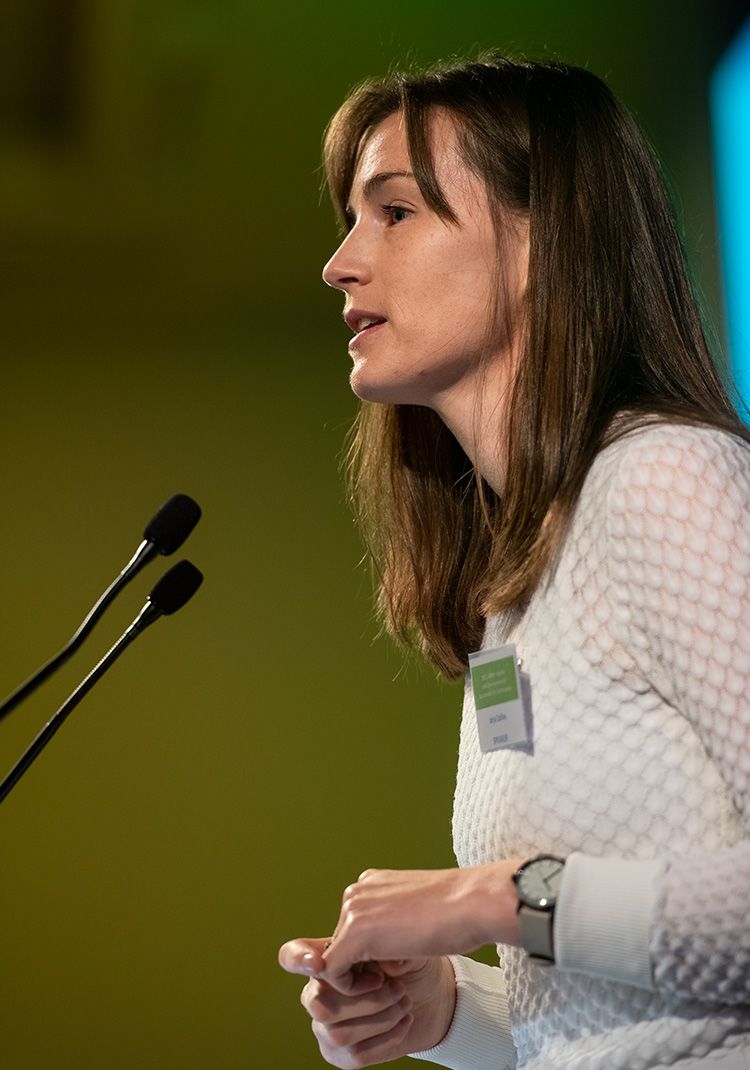
Dr Jorja Collins, from Monash University and Eastern Health. Photo: Penny Stephens
Dr Jorja Collins. Photo: Penny Stephens
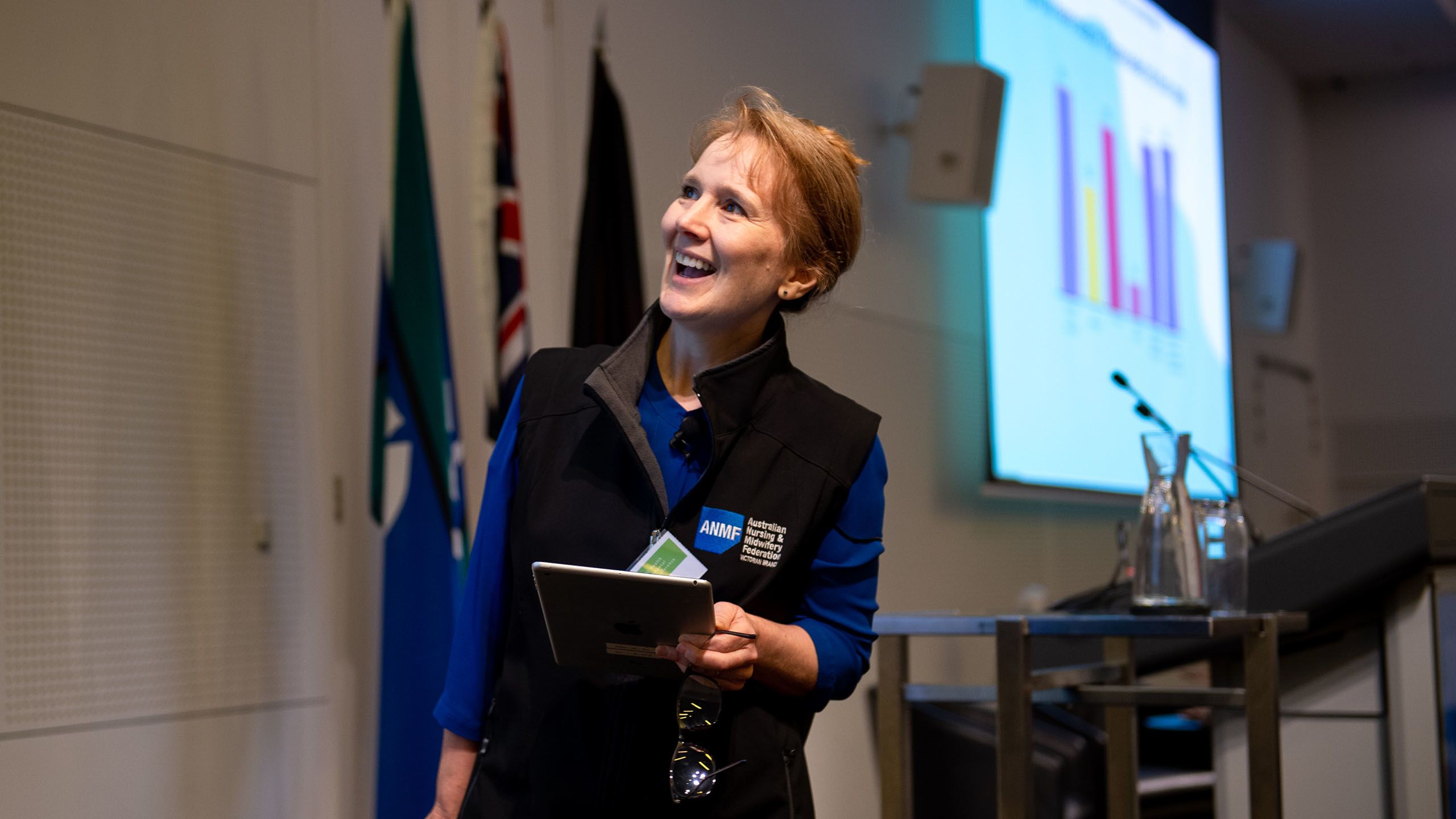
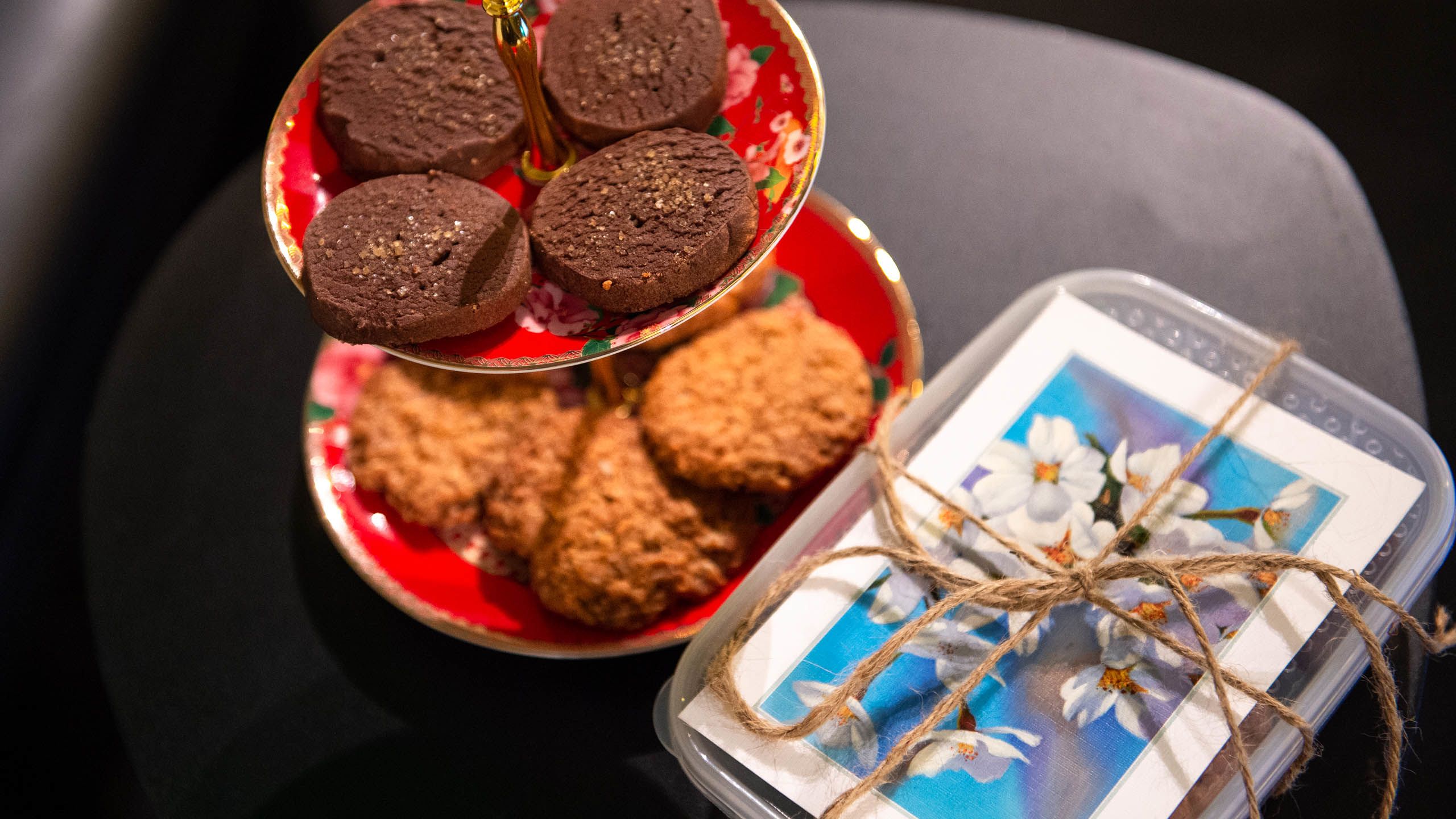
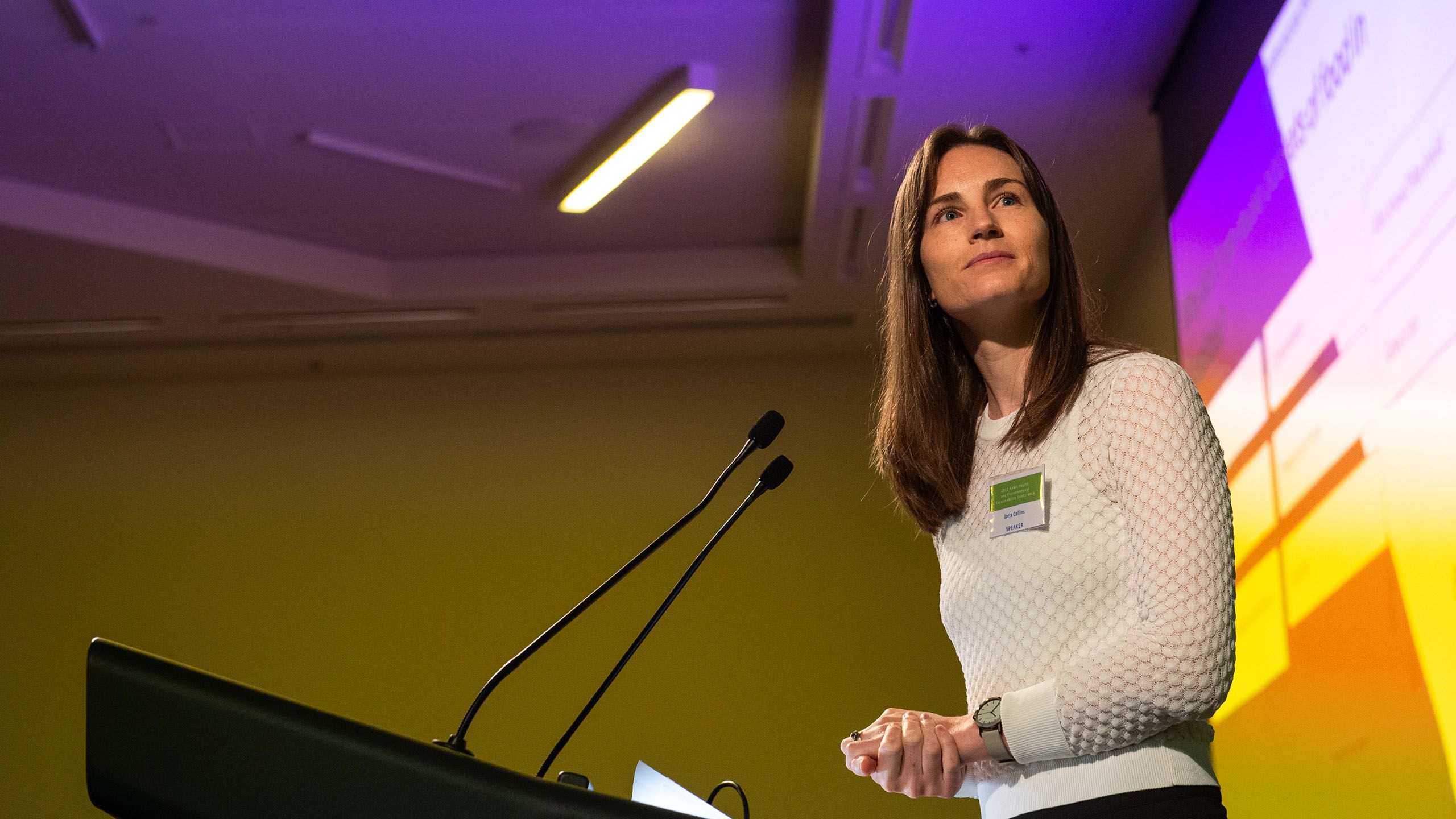

ANMF (Vic Branch) Environmental Health Officer Ros Morgan. Photo: Penny Stephens
ANMF (Vic Branch) Environmental Health Officer Ros Morgan. Photo: Penny Stephens

Tasty treats, courtesy of a Maggie Beer recipe. Photo: Penny Stephens
Tasty treats, courtesy of a Maggie Beer recipe. Photo: Penny Stephens

Dr Jorja Collins, from Monash University and Eastern Health. Photo: Penny Stephens
Dr Jorja Collins. Photo: Penny Stephens
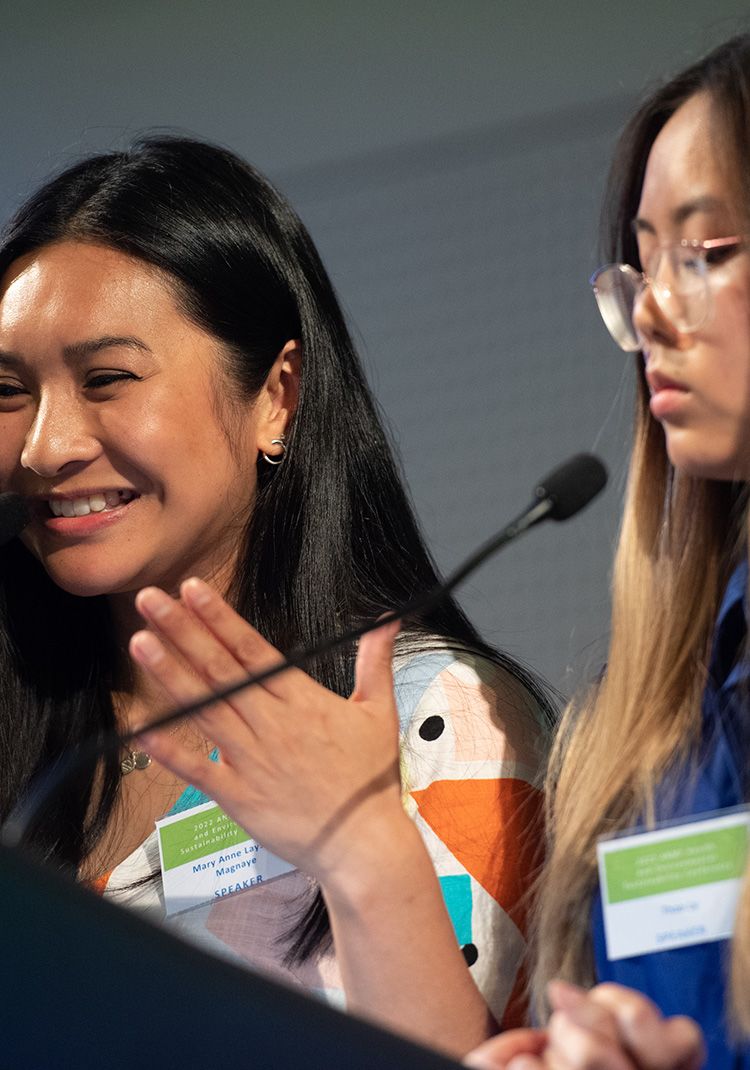
Clinical nurse educator Mary Anne Laysico Magnaye and registered nurse Thao Ly, from Western Health. Photo: Penny Stephens
Mary Anne Laysico Magnaye and Thao Ly. Photo: Penny Stephens
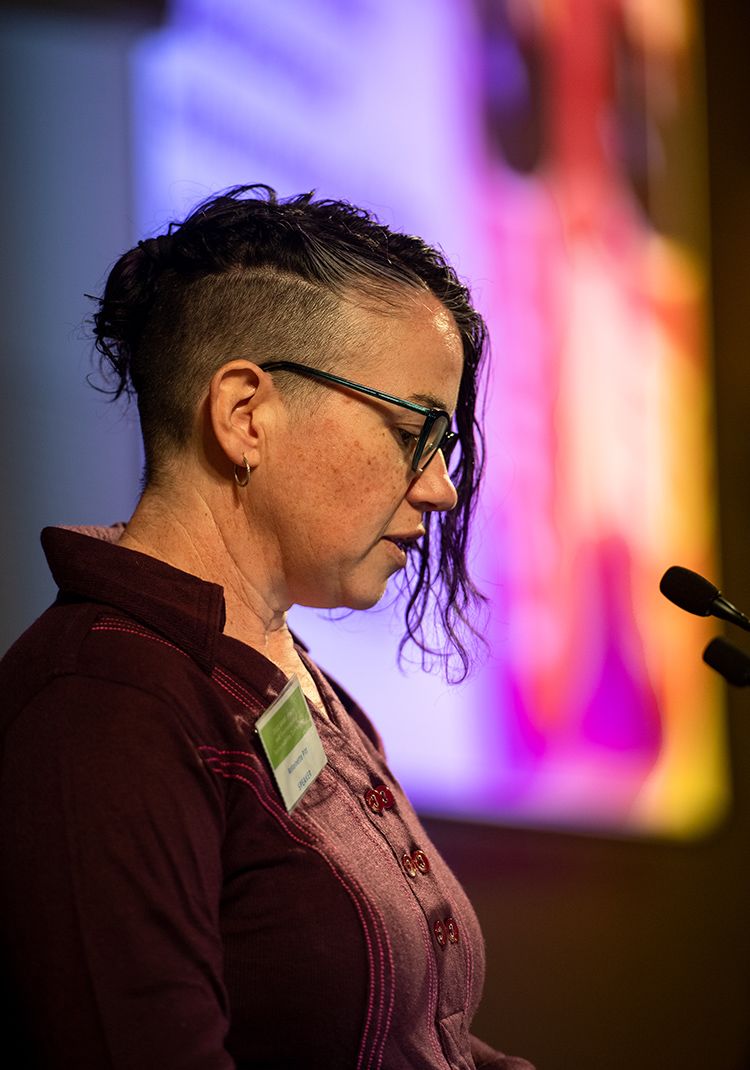
Enrolled nurse Antoinette Pitt, from Lifeblood – Ringwood. Photo: Penny Stephens
Antoinette Pitt. Photo: Penny Stephens
Clinical panel
After a tea break, the clinical panellists took the stage. Clinical nurse educator Mary Anne Laysico Magnaye and registered nurse Thao Ly, from Western Health, told the audience about the work they’ve been doing to make their theatres more sustainable.
Their primary project involves medication bottle recycling, saving countless paracetamol and propofol bottles from being discarded in general waste.
They collect the bottle’s flip caps in theatre, dropping them into denture cups on the anaesthetic trolleys. Then, using a hand-held crimping tool (described by Mary Anne as ‘quite therapeutic’), they remove the non-recyclable metal rings and rubber stoppers, allowing the empty glass bottles to go to recycling.
They also re-use bottles – staff have re-purposed them into sauce bottles, propagation vials and small vases – and have collaborated with a local high school to donate their flip caps, which the students are using to create an art piece. When finished, it will be displayed at the hospital to showcase its culture of sustainability.
Any members interested in similarly salvaging medicine bottle flip caps can now drop them off at the Branch at 535 Elizabeth Street – attention Ros Morgan – for delivery onto a selection of artists who are keen to re-use them.
Another simple sustainability project Mary Anne and Thao mentioned has involved using washable and reusable huck towels in theatre instead of single-use blueys. Their hospital has also introduced reusable baskets instead of plastic bags for patients’ personal belongings, which has saved money as well as waste.
Recycle and upcycle
Antoinette Pitt from Lifeblood Victoria spoke about recycling hard-plastic blood donation wrappers. She reminded attendees of the importance of starting small – as she said, ‘changes need to be easy or change won’t happen’ – and making the problem tangible.
Explaining, she mentioned that some of their staff had problems engaging with their efforts because the amount of waste being generated wasn’t tangible. So Antoinette measured each wrapper, weighed them, tracked down the data on exactly how many blood donations occurred in her Ringwood location, and how many nationally.
‘For Ringwood alone, it was 312 kilograms per year.’ After presenting this information to her team, compliance with recycling measures jumped up to 100 per cent.
Heidi Gilbert works in a small, sustainable dermatology clinic that is partially powered by solar panels, and utilises a water tank that, combined with a filter, helps supply water to their sterilisers. The clinic doesn’t use disposable gowns. They utilise rechargeable batteries. When it comes to how nurses and midwives can more directly contribute, Heidi’s point was about changing behaviours – and like Mary Anne and Thao, this started with ditching the blueys, but also includes simple actions such as making sure that everything in the kitchen/tearoom is re-usable.
The final clinical panellist, Sinead Hickmott from West Gippsland Healthcare Group, gave a beautiful speech on sustainability in providing end-of-life care, specifically via the peace path bag project.
Sinead’s warmly received presentation was followed by Ambulance Victoria’s Jo Algie as she discussed the achievements of her uniform recycling initiative.
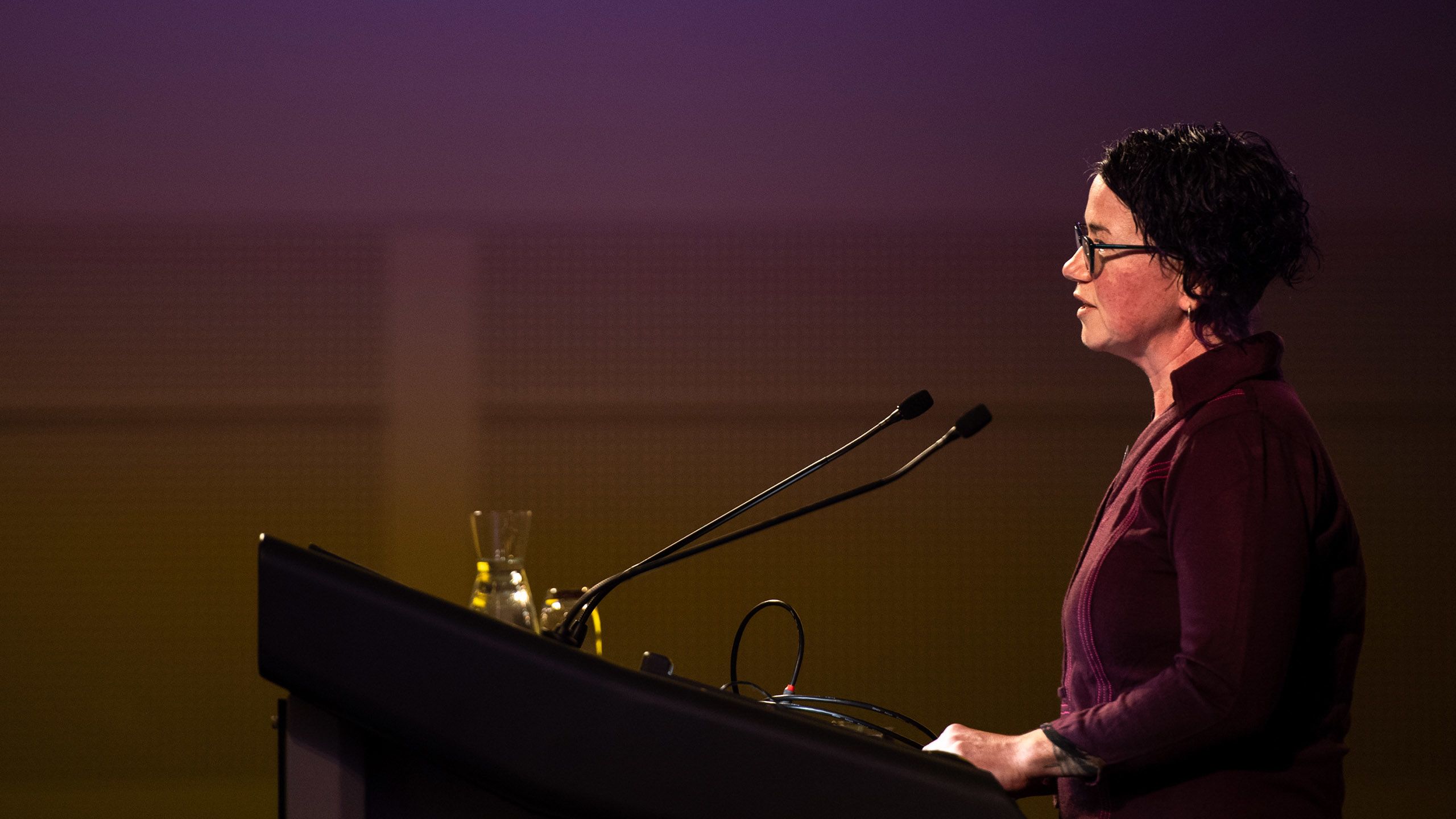
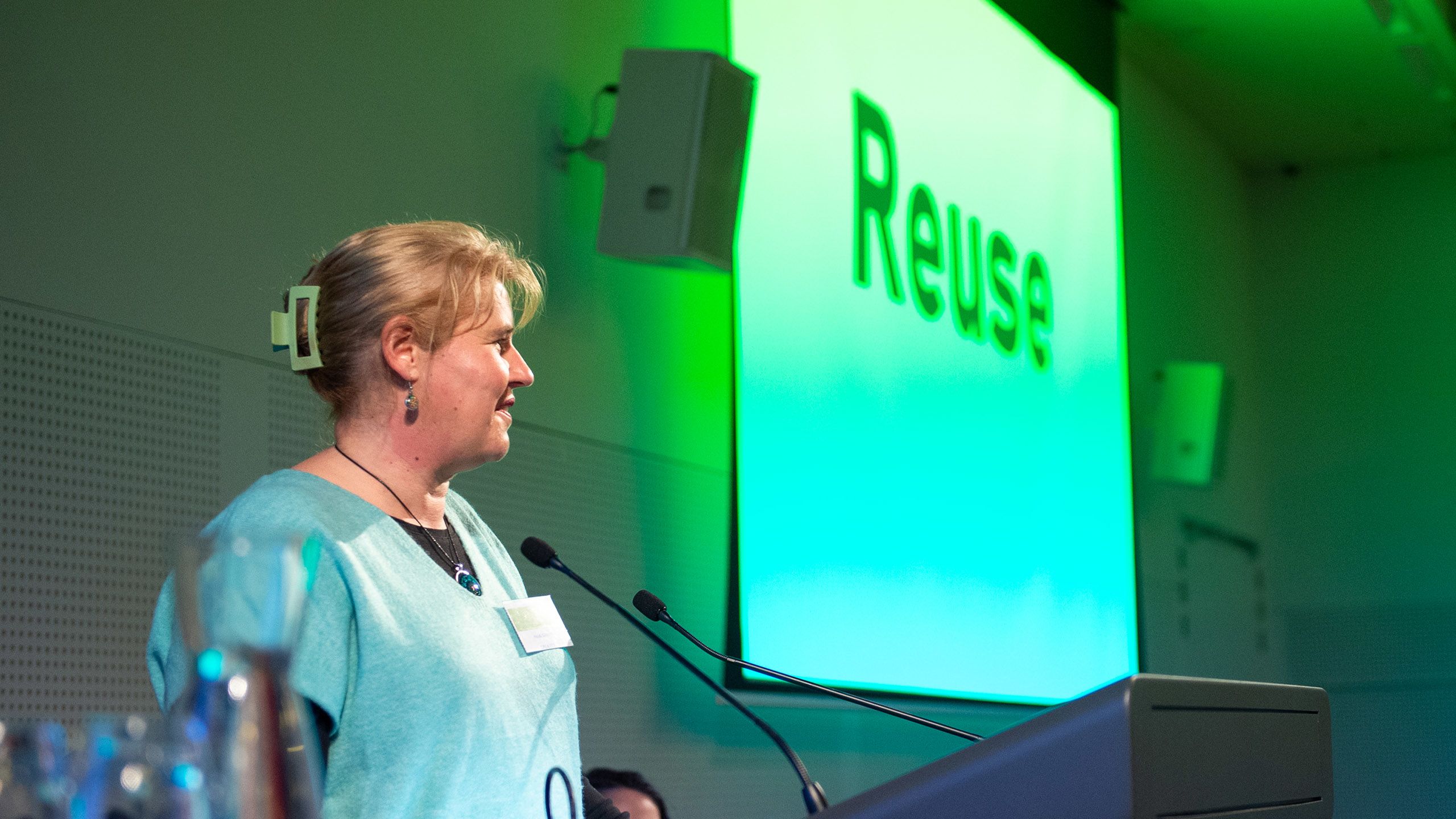
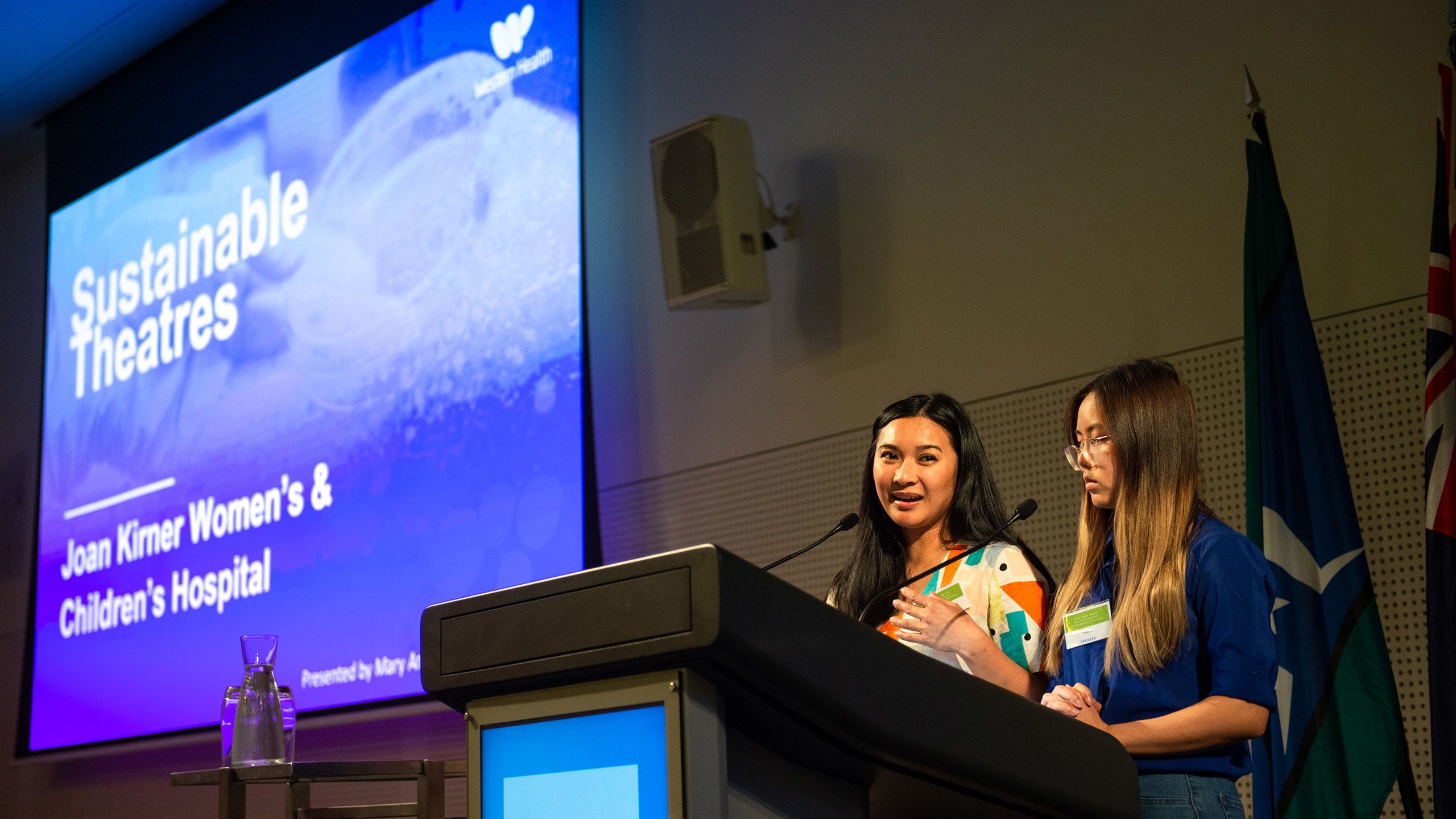
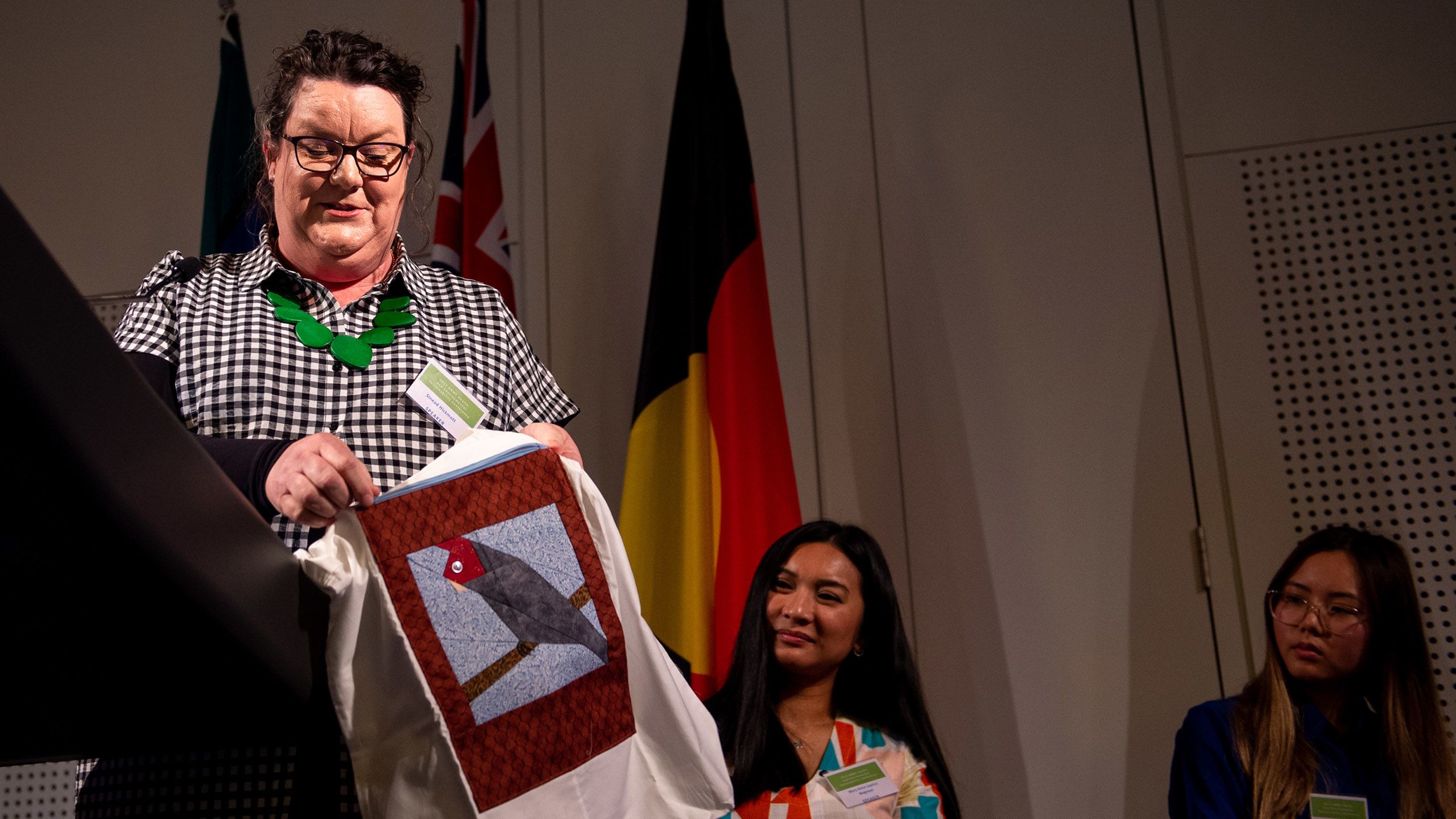
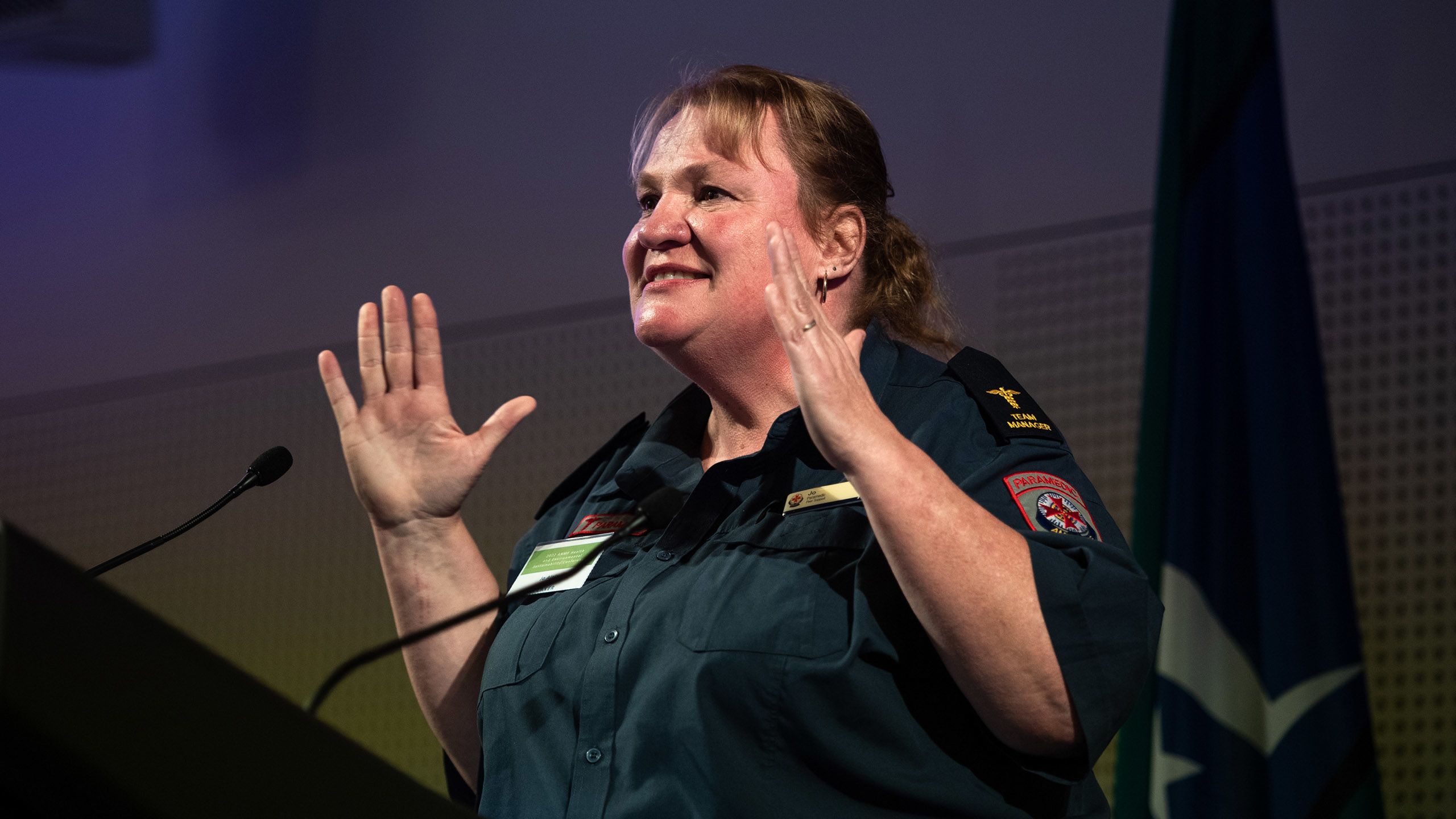
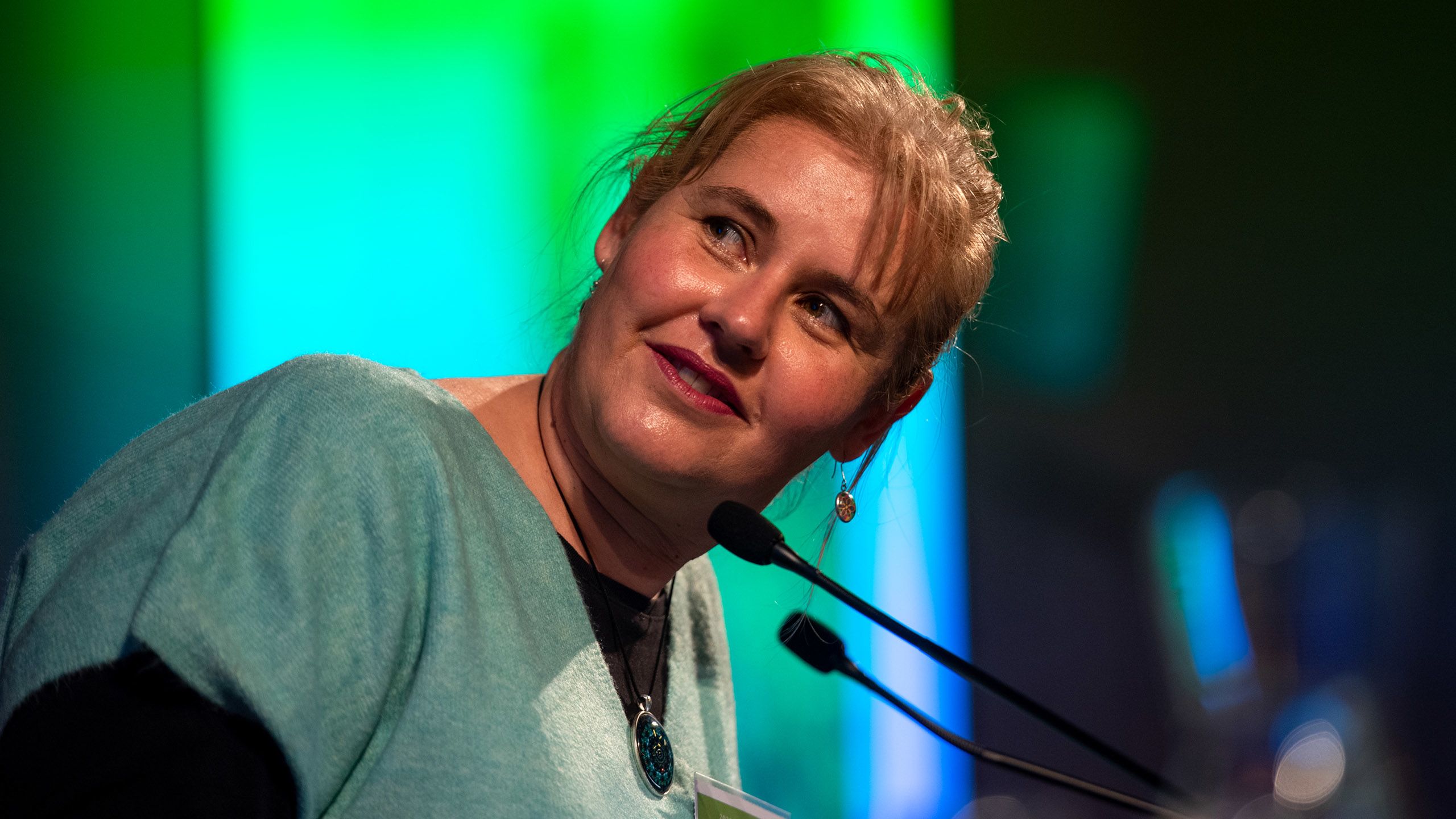
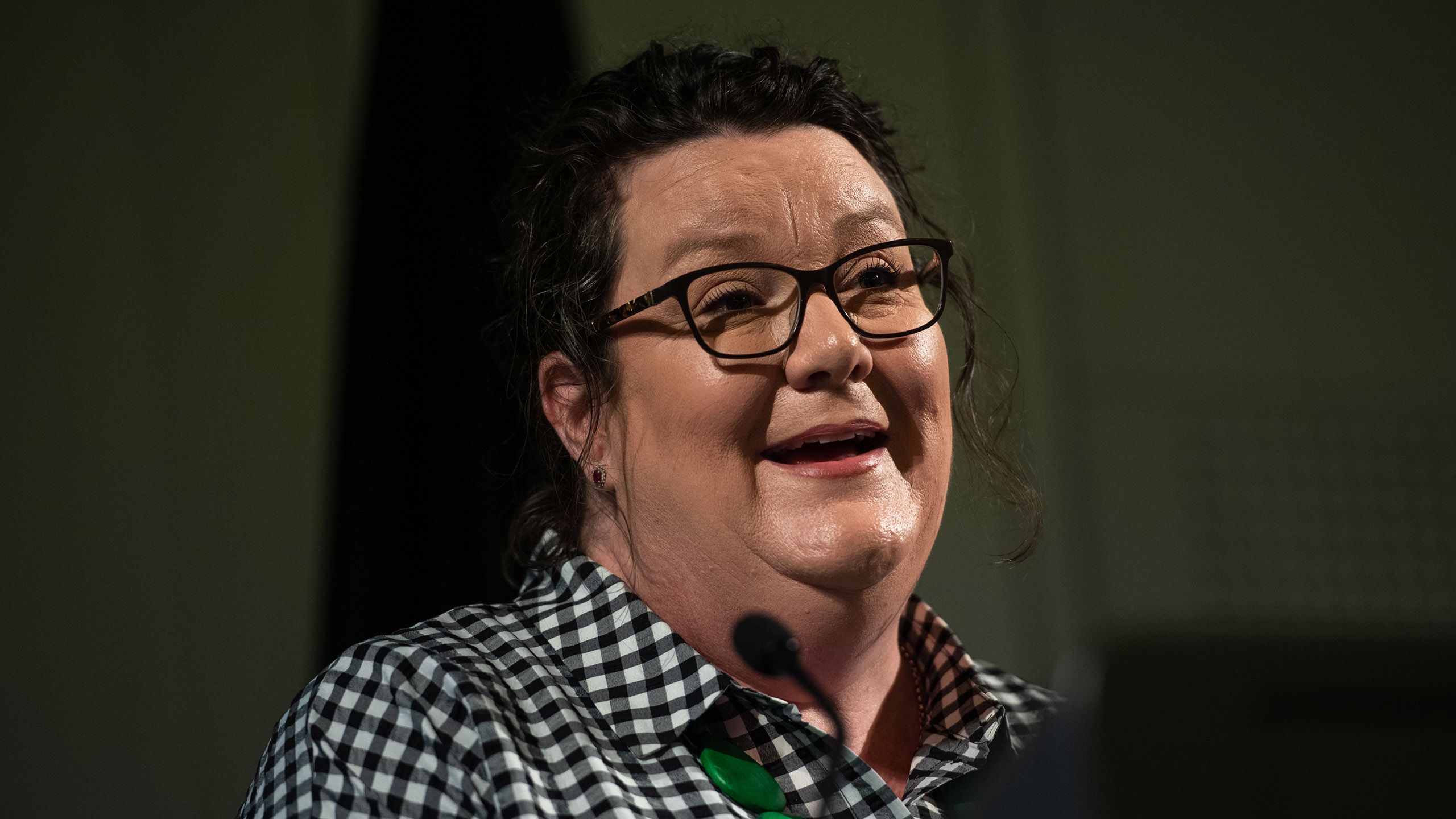

Antoinette Pitt, from Lifeblood – Ringwood. Photo: Penny Stephens
Antoinette Pitt. Photo: Penny Stephens

Heidi Gilbert, from East Malvern Dermatology. Photo: Penny Stephens
Heidi Gilbert. Photo: Penny Stephens

Mary Anne Laysico Magnaye and Thao Ly, from Western Health. Photo: Penny Stephens
Mary Anne Laysico Magnaye and Thao Ly. Photo: Penny Stephens

Sinead Hickmott, from West Gippsland Healthcare Group. Photo: Penny Stephens
Sinead Hickmott. Photo: Penny Stephens

Ambulance Victoria Advanced Life Support paramedic Jo Algie. Photo: Penny Stephens
Ambulance Victoria's Jo Algie. Photo: Penny Stephens

Heidi Gilbert, from East Malvern Dermatology. Photo: Penny Stephens
Heidi Gilbert. Photo: Penny Stephens

Sinead Hickmott, from West Gippsland Healthcare Group. Photo: Penny Stephens
Sinead Hickmott. Photo: Penny Stephens
Single-use plastics ban
Following lunch, the Australian Packaging Covenant Organisation sustainability manager Jayne Paramour updated attendees on developments in driving a circular economy for packaging, before graduate nurse and former ecologist Lucinda Gibson spoke on the interconnectedness between biodiversity and health.
Then it was time to address the upcoming single-use plastics ban in Victoria, with panellists Amanda Elliott from the Department of Environment, Land, Water and Planning, Ben Mouat from the Climate and Health Alliance (CAHA), and Stephanie Hughes from South West Healthcare Victoria.
Amanda laid out the reasons for the ban – which comes into effect state-wide in February 2023, and encompasses drinking straws, cutlery, plates, swizzle sticks, expanded polystyrene food and drink containers, and cotton-bud sticks – and put it in context as part of the Andrews Labor Government’s bigger reform agenda to improve the waste and recycling sector in Victoria.
She also reiterated the healthcare exemptions: drinking straws for disability or medical reasons, and cotton buds for testing in scientific, medical, forensic or law enforcement purposes.
Ben shared news of CAHA’s pilot project to create a fact sheet and webpage to assist those wanting to reduce single-use plastics in healthcare settings. You can find details at caha.org.au/reducing_sup_in_health.
Stephanie, a registered nurse and clinical products adviser, shared with the audience the remarkable achievements her hospital has made in replacing single-use plastics with compostable alternatives. The key takeaways are twofold:
- they have now replaced all of their drinking straws, cutlery, plates, stirrers, polystyrene cups and almost all of their 30ml and 60ml pill cups, kidney dishes, injection trays (and their packaging) with compostable alternatives
- and they have saved money doing it – just replacing the pill cups saved them $60,000 alone.
‘We’ve proved that this can be done,’ Stephanie told the audience to hearty applause.
Terracycle’s Ben Elvy – presenting remotely, due to COVID – closed proceedings with an overview of Terracycle’s mission to eliminate the idea of waste.

Australian Packaging Covenant Organisation sustainability manager Jayne Paramour. Photo: Penny Stephens
Jayne Paramour. Photo: Penny Stephens
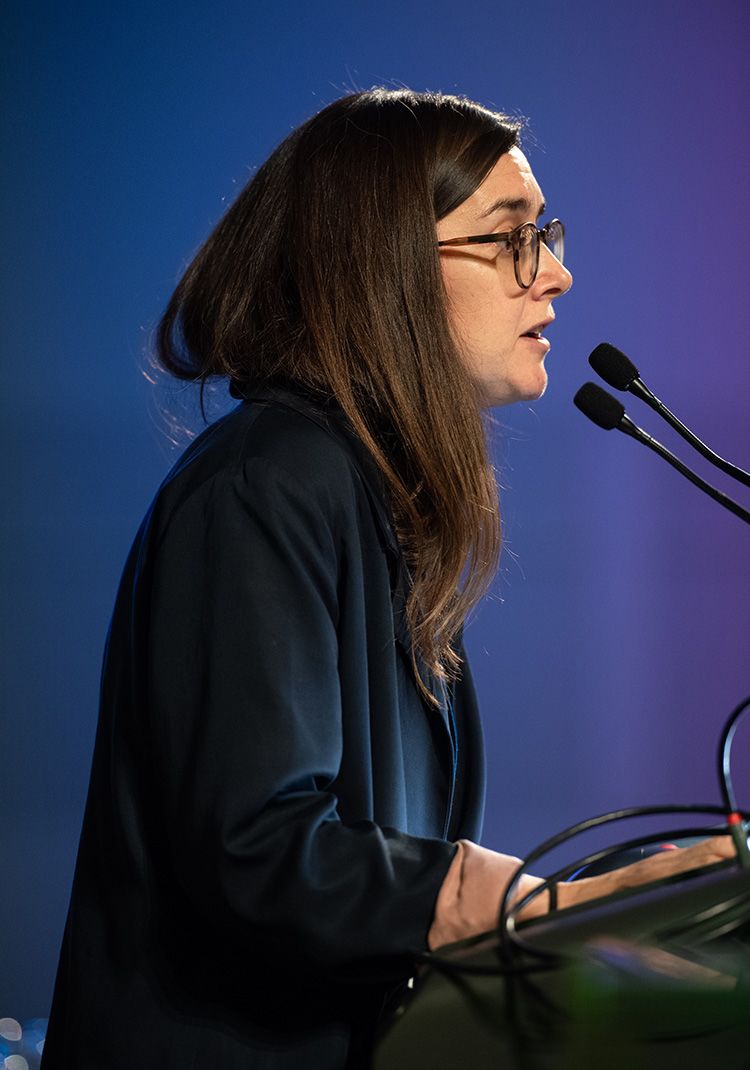
Amanda Elliott, from the Department of Environment, Land, Water and Planning's Waste and Recycling Division. Photo: Penny Stephens
Amanda Elliott. Photo: Penny Stephens

Registered nurse and clinical products adviser Stephanie Hughes, from South West Healthcare Victoria. Photo: Penny Stephens
Stephanie Hughes. Photo: Penny Stephens
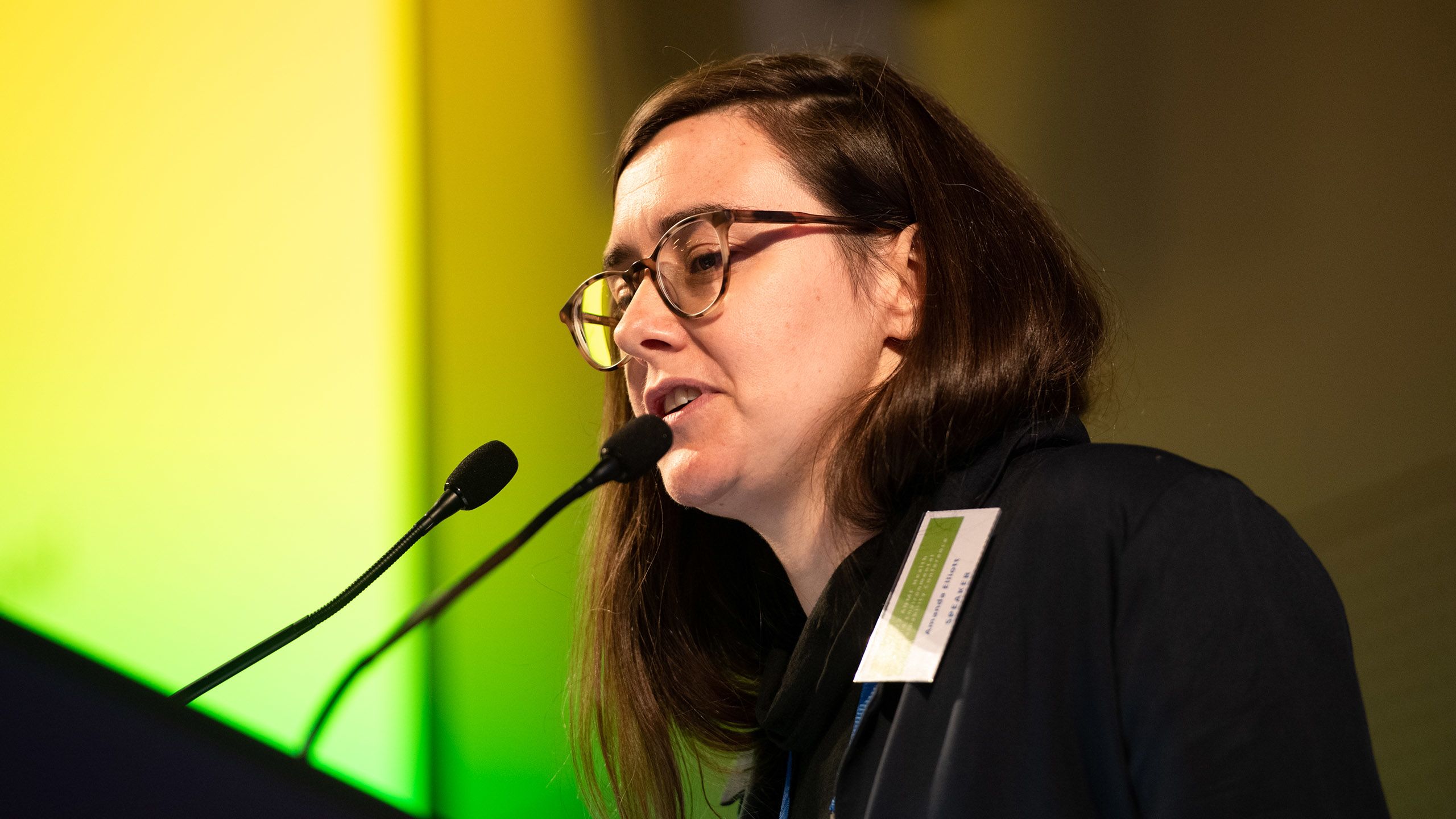
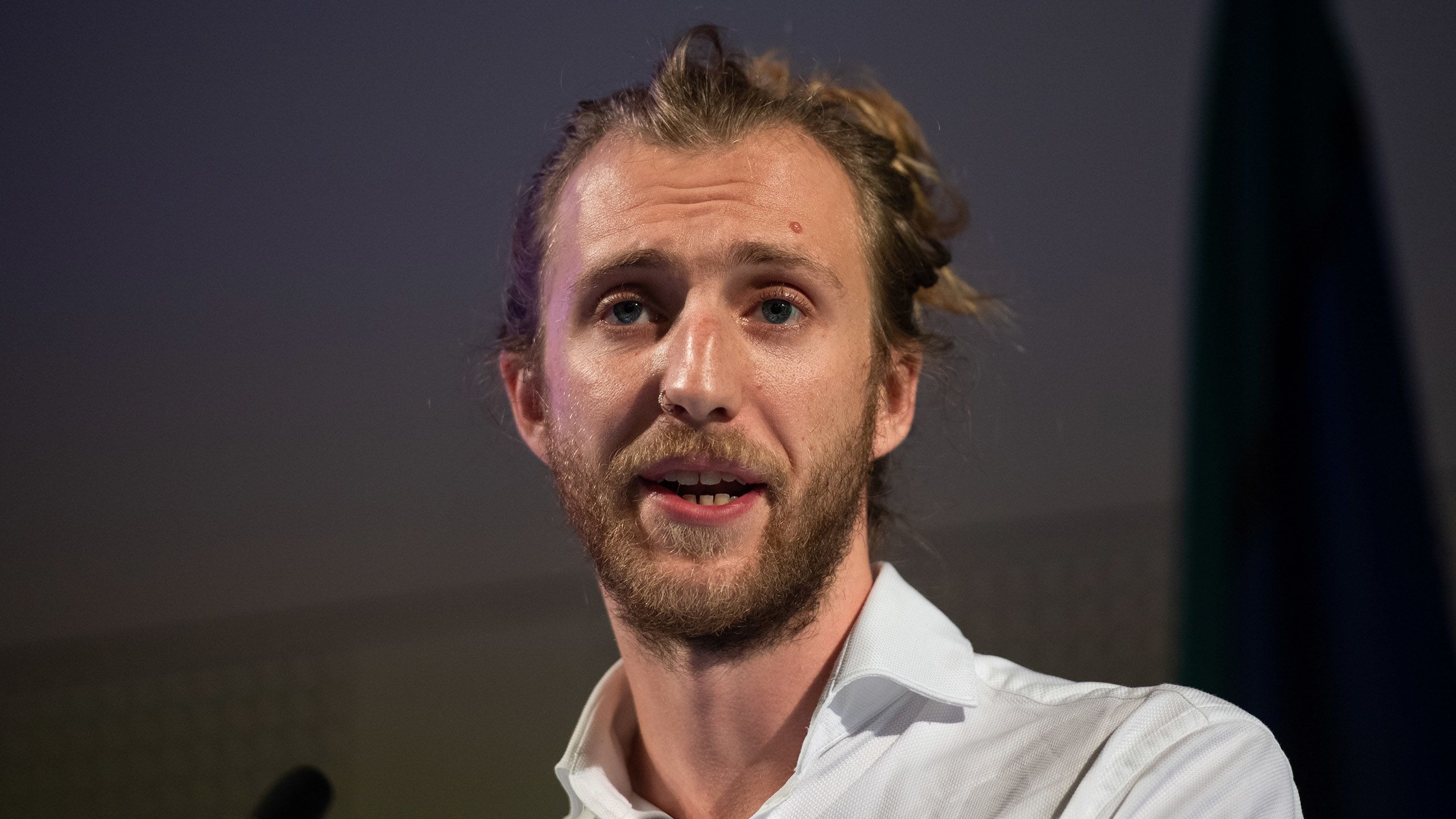
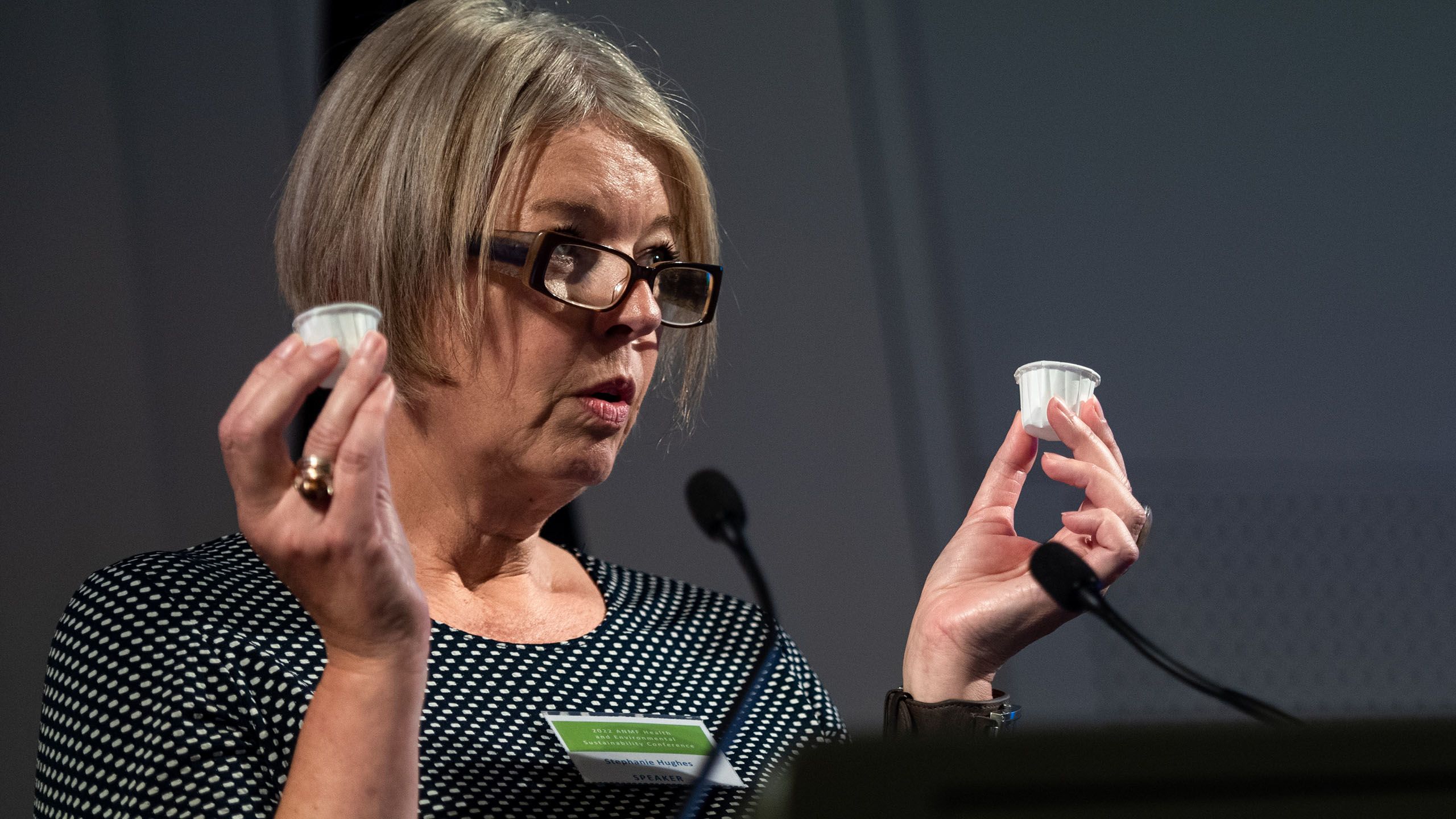

Amanda Elliott, from the Department of Environment, Land, Water and Planning's Waste and Recycling Division. Photo: Penny Stephens
Amanda Elliott. Photo: Penny Stephens

Ben Mouat, from the Climate and Health Alliance. Photo: Penny Stephens
Ben Mouat. Photo: Penny Stephens

Registered nurse and clinical products adviser Stephanie Hughes, from South West Healthcare Victoria. Photo: Penny Stephens
Stephanie Hughes. Photo: Penny Stephens
The 2022 Health and Environmental Sustainability Conference was an energising day of learning and inspiration for members who attended and spoke.
For more information and further inspiration, the Branch has prepared a resource hub on our website containing a range of information and ready-to-use workplace resources and tools on health and sustainability.
ANMF Job Reps passed a resolution at the 2012 Annual Delegates Conference calling on ANMF to become more involved in climate change and environmental policy debate. ANMF has been holding this annual conference since 2013.

